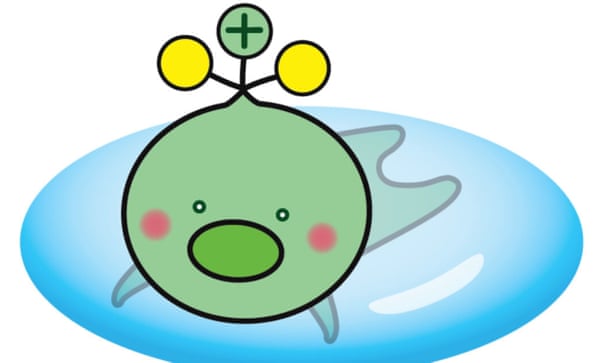The Japanese government has been forced to quickly retire an animated character it had hoped would win support for its decision this week to release more than 1m tonnes of contaminated water from the Fukushima Daiichi nuclear power plant into the sea.
Although the water will be treated before being discharged, it will still contain tritium, a radioactive hydrogen isotope represented on a government website by a cute fish-like creature with rosy cheeks.
The character’s appearance in an online flyer and video on the reconstruction agency’s website angered Fukushima residents.
“It seems the government’s desire to release the water into the sea takes priority over everything,” Katsuo Watanabe, an 82-year-old Fukushima fisher, told the Kyodo news agency. “The gap between the gravity of the problems we face and the levity of the character is huge.”
Riken Komatsu, a local writer, tweeted: “If the government thinks it can get the general public to understand just by creating a cute character, it is making a mockery of risk communication.”
Social media users named the character Tritium-kun – or Little Mr Tritium – an apparent reference to Pluto-kun, who appeared in the mid-1990s to soften the image of plutonium on behalf of Japan’s nuclear industry.
The reconstruction agency, which oversees recovery efforts in the region destroyed by the March 2011 earthquake, tsunami and nuclear meltdown, removed the promotional material on Wednesday, a day after it first appeared.
Experts say tritium is harmful to humans only in large doses, and that with dilution the treated water poses no scientifically detectable risk.
The character was created to explain that the release of tritium into the sea is standard practice at nuclear power plants around the world.
Local fishing communities say the water’s release will destroy a decade of hard work to rebuild consumer confidence in their seafood.
Work to release the diluted water will begin in about two years, the government has said, and the process is expected to take decades.
“Nuclear power plants are highly specialised and difficult to understand,” an agency official told Kyodo, adding that the tritium mascot would be redesigned to take into account public sentiment.
Japan’s decision to discharge the water also angered neighbouring countries. South Korea said it was considering taking the issue to the international tribunal for the law of the sea, possibly to seek an injunction, according to a spokesperson for the president, Moon Jae-in.
The Chinese foreign ministry said releasing the water would set a bad precedent for the disposal of wastewater. “The ocean is not Japan’s rubbish bin, the Pacific Ocean is not Japan’s sewers,” said Zhao Lijian, a foreign ministry spokesperson.
Zhao invited Japan’s deputy prime minister, Taro Aso, to drink some of the treated water, after Aso said it was harmless enough to consume. “A Japanese official said it is OK if we drink this water, so then please drink it,” Zhao said.
More about:
















































